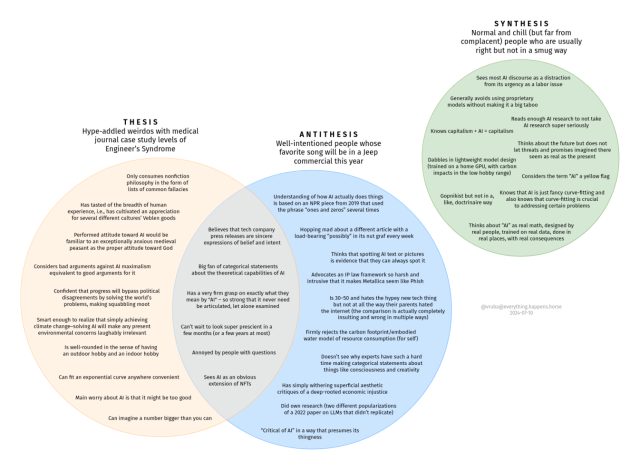(via vruba)

(via vruba)

(via vruba)

The web has turned out to be just another communication tool to reflect the good and bad of society. No more, no less. The good in the world is still mostly shaped by governments, regulation, NGOs, the UN, the EU (GDPR), philanthropists and volunteer organisations. Throughout the two day conversation, I felt people were disappointed the web hadn’t been able to live up to its perceived almost-socialist-but-ultimately-neo-liberal promise. Many said they wanted to engage with governments more. Many talked about open data for cities. Mostly, it was unclear what exactly the web could do to address ISIS, sexism, racism, violence, addiction. Because it can’t. The web has become as useful or useless as people want it to be. No more, no less.
via https://medium.com/@iotwatch/the-tech-that-does-or-doesnt-matter-thoughts-after-cph150-e3e3f582334c
If we believe that, indeed, “software is eating the world,” that we are living in a moment of extraordinary technological change, that we must – according to Gartner or the Horizon Report – be ever-vigilant about emerging technologies, that these technologies are contributing to uncertainty, to disruption, then it seems likely that we will demand a change in turn to our educational institutions (to lots of institutions, but let’s just focus on education). This is why this sort of forecasting is so important for us to scrutinize – to do so quantitatively and qualitatively, to look at methods and at theory, to ask who’s telling the story and who’s spreading the story, to listen for counter-narratives.
Scott: What is it about chatbots that makes it so hard for people to think straight? Is the urge to pontificate about our robot-ruled future so overwhelming, that people literally can’t see the unimpressiveness of what’s right in front of them?